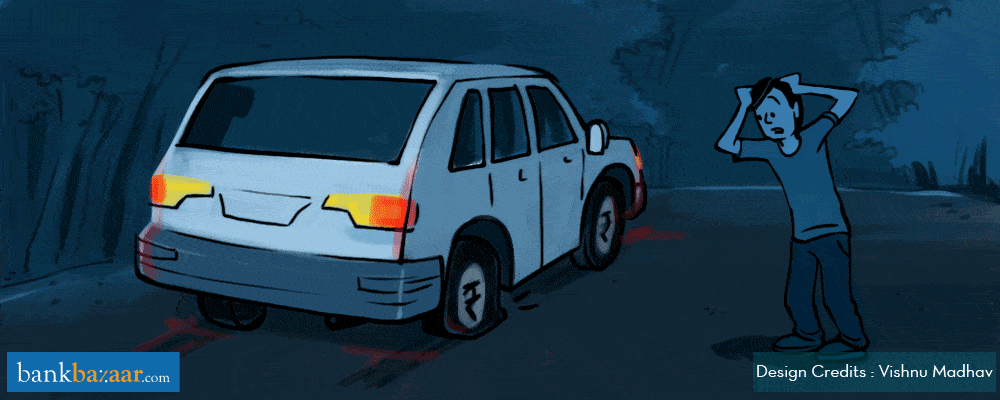
“Life’s a box of chocolates, Forrest. You never know what you’re gonna get.” Nothing summarises the uncertainties of life as well as this popular quote from Forrest Gump. All of us like to plan for our futures, keeping our fingers crossed and hoping that everything falls into place as we expected. But when a financial crisis comes knocking at your door, it can knock the wind out of your sails, sending all future plans for a toss.
From a sudden medical expense to any other unforeseen expenditure, financial emergencies have many faces. While the wise expect the unexpected and do their best to deal with monetary crises, the truth is that no one can be completely prepared for those bolts out of the blue. Usually, a sudden financial crisis is accompanied by panic which leads to a plethora of bad decisions. To help you through financial emergencies, we have a few tips that can go a long way in helping you stay afloat in troubled waters.
Here are few things you need to follow to make the best out of the worst monetary situation:
Divide and Rule
When you are hit by a sudden money crunch, the first and foremost thing to do is to control your expenditure by cutting out all unnecessary spending. And in order to figure out which expenses are necessary and which are not, divide your expenditure into three categories: Unavoidable, Controllable and Avoidable.
- Unavoidable Expense: Rent, EMIs, electricity bill, water bill, school fees and other utility bills fall under this category. Since you cannot do without these expenses, trimming this kind of expenditure is next to impossible.
- Controllable Expense: Food, transport, groceries, mobile and internet expenses can be subjected to cost-cutting since these are controllable expenses. When in a financial crisis, one needs to cut down on these expenses as much as possible.
- Avoidable Expense: Eating out, partying, movies, shopping, among others, are the last things you should spend on when facing financial trouble as these are avoidable expenses. If you stay away from this sort of unnecessary expenditure, you can save a substantial amount of money.
Once you have divided your expenses, it becomes easy for you to identify the unnecessary expenditure that you need to avoid.
Additional Reading: The Stack Method: An Effective And Speedy Way To Clear Your Debts
Loans for Employee
Nowadays, quite a few organisations have started giving out small loans at low-interest rates to their long-term employees. If your company offers such credit, make use of it as it is highly unlikely you’ll find a loan with interest rates as low as that of an employer’s loan.
Liquid Cash over Property Sale
It might seem like a good idea to sell your old car or property in order to deal with a money crunch. But money attained from such sale of property is subject to capital gains tax. In order to avoid losing money on taxes, always utilise Mutual Funds or money in a Savings Account that can be easily liquidised. Selling off property should be used only as a last resort.
Use your Credit Card wisely
A Credit Card is a boon for those stuck in a financial crisis, but it needs to be used with caution. It’s obvious that you should avoid swiping your Credit Card for unnecessary expenses. In addition, you should make the most of the payment window to pay your Credit Card bill. It is always advisable to swipe your Credit Card at the start of a new payment cycle as you get extra few days to arrange for funds and pay the bill before the payment window expires. If you swipe your Credit Card for an unavoidable expense, make sure that you pay your Credit Card bill within the payment window to avoid paying a hefty interest.
Good Credit Score = Good Personal Loan
If you have to resort to taking a Personal Loan, review your Credit Score before signing the application form. A good Credit Score gives you the power to negotiate the interest rate on a Personal Loan. One who has a good Credit Score and is smart enough will avail a Personal Loan at comparatively lower interest rates. Don’t underestimate the power of Credit Score!
Additional Reading: 3 Ways To Improve Your Credit Score Quickly
Cash over Card
The most basic thing one can do to save money during a financial crisis is to avoid the urge to splurge. Plan your daily budget and keep your Debit Card or Credit Card at home. Keep only limited cash in your wallet so that you never spend above your daily budget.
While all these steps can help you wiggle out of financial emergencies, it is always a good thing to have substantial savings to fall back on during troubled times. So make hay while the sun shines and keep saving for a rainy day!